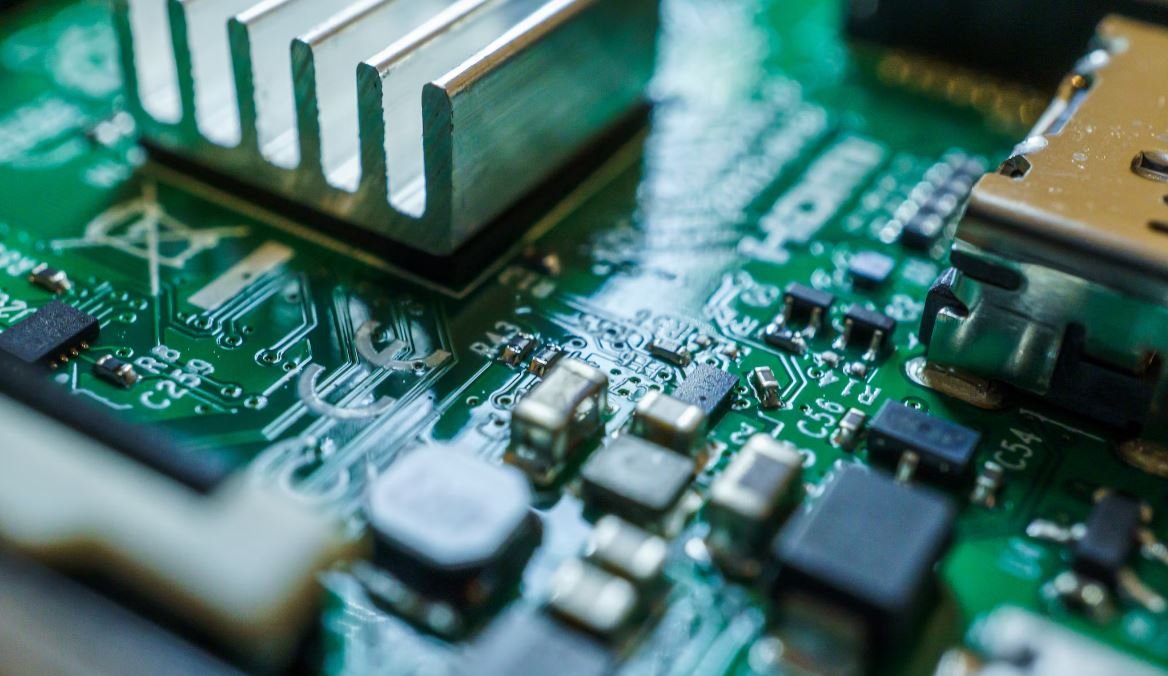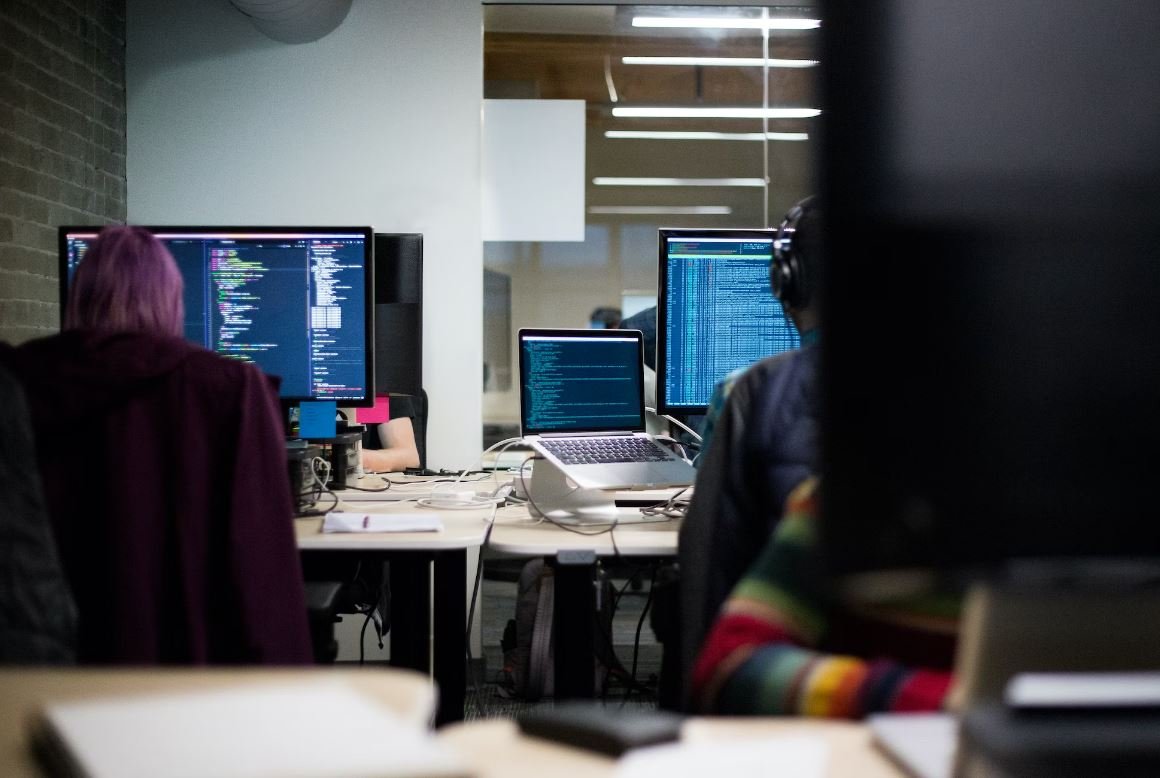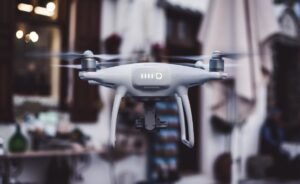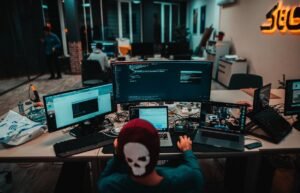AI Music: Owning Your Voice
The power of Artificial Intelligence (AI) has permeated various industries, including music. AI technology has revolutionized the way music is created, performed, and consumed, leading to the emergence of AI-generated music. With the ability to mimic various music genres and styles, AI music has provided new opportunities for artists and listeners alike. In this article, we will delve into the world of AI-generated music and explore how it is reshaping the music industry.
Key Takeaways:
- AI-generated music is a byproduct of advancements in Artificial Intelligence technology.
- It can mimic various music genres and styles, providing endless possibilities for creators.
- AI music is gaining popularity among mainstream audiences and changing the way music is consumed.
- Despite its potential, AI-generated music raises concerns about copyright and the future role of human musicians.
The Rise of AI Music
One of the most impressive aspects of AI music is its ability to replicate the sounds and styles of legendary artists. AI algorithms can analyze vast amounts of data to learn patterns, chord progressions, and instrument techniques used by renowned musicians. This enables AI systems to produce music that closely resembles the work of these artists, **capturing their essence** in a new creation.
AI music has also opened up opportunities for **amateur musicians**. With AI tools and platforms, aspiring artists who lack formal training can easily create professional-sounding compositions. Additionally, AI opens possibilities for **collaboration between human musicians and AI systems**, fostering a unique blend of creativity and technology.
AI Music in the Mainstream
The popularity of AI-generated music is on the rise. Streaming platforms are incorporating AI algorithms to recommend personalized playlists based on user preferences, further diversifying the music landscape. As AI technology continues to advance, it has become increasingly challenging to differentiate between music created by humans and AI systems.
One interesting example is the AI project named “Flow Machines,” which **produced an entire album** – “Hello World” – **composed in various genres**. The album showcased the potential of AI music by delivering a collection of catchy and innovative tracks. This project demonstrated that AI systems have the capability to understand and recreate the distinct characteristics of different musical genres.
The Future of AI in the Music Industry
While AI music offers exciting possibilities, it also raises important questions. As AI systems become more sophisticated, concerns about the role of human musicians and the ethics of AI music creation emerge. There are debates over whether AI music can be considered genuine artistic expression or simply sophisticated algorithms mimicking existing works.
It is crucial for the music industry to navigate this territory responsibly and ensure that AI music is used ethically and legally. Transparency around the use of AI in music creation and copyright issues needs to be addressed to protect the rights of artists and ensure a level playing field.
Exploring the AI Music Landscape
Here are three interesting tables showcasing different aspects of AI music:
| Table 1: Major AI Music Projects | Date of Creation | Genres Explored |
|---|---|---|
| Flow Machines | 2016 | Pop, Jazz, Rock |
| Magenta | 2015 | Classical, Jazz, Folk |
| Amper Music | 2014 | Various |
| Table 2: AI-Generated Music Characteristics | Numeric Rating |
|---|---|
| Musicality | 8/10 |
| Creativity | 7/10 |
| Authenticity | 6/10 |
| Table 3: Pros and Cons of AI Music | Pros | Cons |
|---|---|---|
| Infinite creative possibilities | Reduced human involvement in music creation | Potential copyright infringement |
| Accessible music creation tools | Risk of loss of artistic uniqueness | Dependence on technology |
| Enhanced music discovery and personalization |
Embracing the AI-Powered Future
As AI music continues to evolve, it is essential for the music industry to find a balance between harnessing the benefits of AI technology and preserving the creative expression of human musicians. Through responsible use, AI music has the potential to **revolutionize the industry**, allowing artists to explore new frontiers of creativity and listeners to discover an even broader range of musical experiences.

Common Misconceptions
Misconception 1: AI Music lacks creativity
One common misconception people have about AI Music is that it lacks creativity. However, AI algorithms have been designed to learn from vast amounts of existing musical data and generate new compositions based on that knowledge. While AI may not possess the emotional depth or personal experiences that human musicians have, it is capable of creating unique and innovative soundscapes.
- AI Music algorithms utilize machine learning to analyze patterns and generate new music.
- AI can compose music in various genres, styles, and moods.
- AI-produced music can be used as inspiration and a starting point for human musicians to further develop and refine.
Misconception 2: AI Music replaces human musicians
Another misconception is that AI Music aims to entirely replace human musicians. While AI algorithms have gained the ability to create music, they are not intended to replace the artistic capabilities of human musicians. AI Music serves more as a tool to assist and enhance creative processes, enabling musicians to explore new musical territories and experiment with ideas they might not have thought of on their own.
- AI Music acts as a collaborator, offering fresh ideas and perspectives for human musicians to work with.
- Human musicians bring unique emotions, intentions, and interpretations to their performances that AI cannot replicate.
- The combination of AI and human creativity can lead to new and exciting musical experiences.
Misconception 3: AI Music lacks emotional depth
Some people believe that AI Music lacks emotional depth and is incapable of conveying meaningful emotions. While AI-generated music may not possess personal experiences and emotions, it can still evoke powerful emotions in listeners depending on how it is composed and arranged. AI algorithms can replicate certain patterns associated with specific emotions, enabling the creation of emotionally engaging music.
- AI Music can create music that conveys a range of emotions, including happiness, sadness, excitement, and serenity.
- Emotional connection with music is ultimately subjective and depends on the listener’s interpretation, regardless of who composed it.
- AI Music can be customized to create music that aligns with specific emotional themes or moods desired by the user.
Misconception 4: AI Music lacks authenticity
There is a misconception that AI Music lacks authenticity because it is created by algorithms rather than human musicians. However, authenticity in music is not solely dependent on the composer’s identity, but rather on the emotional resonance and artistic merit conveyed through the composition. While AI-generated music may not have a personal backstory, it can still capture the essence of authenticity through the exploration and expression of musical ideas.
- Authenticity in music is not limited to the origin of its creation, but is determined by its ability to resonate with listeners.
- The listener’s perception of authenticity is influenced by their personal experiences and cultural background.
- AI Music can be trained to replicate certain characteristics of different artists or musical styles, making it adaptable and versatile.
Misconception 5: AI Music will replace the need for human creativity
Some believe that AI Music will eventually eliminate the need for human creativity in the music industry. However, human creativity has a depth and range that cannot be replicated by AI algorithms alone. While AI can assist in the creative process and generate novel musical ideas, it is the human touch that brings a unique perspective and subjective interpretation to music, making it an irreplaceable element in the industry.
- Human creativity encompasses emotional intelligence, intuition, and complex decision-making processes that AI cannot mimic.
- The collaboration between AI and human musicians can lead to groundbreaking innovations in music creation.
- The continued presence of human creativity is essential in shaping and refining the role of AI in the music industry.

AI Generated Music vs. Human Composed Music
In recent years, artificial intelligence (AI) has made significant advancements in various domains, including the music industry. This table compares AI-generated music and human composed music, highlighting the key differences between the two.
| AI-Generated Music | Human Composed Music |
|---|---|
| Created by algorithms | Created by human composers |
| Based on patterns and trends in existing music | Built on creativity, emotions, and personal experiences |
| Can produce music at an incredible speed | Time-consuming process requiring inspiration and skill |
| Lacks emotion and human touch | Expresses feelings and connects with listeners on a deeper level |
| Often used in background music for videos or advertisements | Used in various genres and for artistic expression |
| Allows for customization and adaptation based on user preferences | Distinct style and unique musical identity |
| Continuously evolving and improving with machine learning | Reflects the evolution of musical styles and trends |
| Tends to lack originality and can sound generic | Potential for groundbreaking and innovative compositions |
| Accessible to anyone with access to AI music tools | Requires musical talent, expertise, and training |
| Raises new questions about the role of AI in the creative process | Embodies the essence and spirit of human creativity |
Popular AI-Generated Music Applications
This table showcases some of the most popular AI-generated music applications that have gained recognition in recent years. These platforms utilize artificial intelligence to produce diverse and captivating musical compositions.
| AI Music Application | Description |
|---|---|
| AIVA | An AI composer that can generate symphonic music tailored to individual preferences |
| Amper Music | A platform that provides users with customizable AI-generated music for various video and audio projects |
| Magenta | A Google-developed AI tool that enables musicians and artists to explore new music-making possibilities |
| Jukedeck | A platform that offers AI-generated royalty-free music for content creators and commercial projects |
| Endel | An AI-powered app that generates personalized music to enhance focus, relaxation, and sleep |
| Songsmith | A Microsoft project that uses AI to help users create original songs based on their voice recordings |
| Flow Machines | An AI research project that aims to analyze musical styles and generate new compositions in collaboration with human composers |
| Humtap | An app that transforms hummed melodies into fully orchestrated songs using AI algorithms |
| Amadeus Code | An AI-powered songwriting assistant that generates melodic ideas and helps songwriters create music |
| Ecrett Music | A platform that creates AI-generated music for use in videos, games, and other multimedia projects |
AI Music’s Impact on the Music Industry
This table explores the notable impacts of AI-generated music on the music industry, influencing different aspects of production, consumption, and creativity.
| Aspect | Impact of AI Music |
|---|---|
| Composition | Enables faster creation and exploration of new musical ideas |
| Production | Offers cost-effective music production solutions |
| Creative Collaboration | Promotes collaboration between human composers and AI algorithms, expanding artistic possibilities |
| Accessibility | Provides opportunities for aspiring musicians to create professional-quality music without extensive training |
| Personalization | Allows for customized music tailored to individual preferences and moods |
| Copyright and Legal Issues | Raises concerns about ownership, licensing, and the originality of AI-generated compositions |
| Consumer Experience | Offers an abundance of options, genres, and styles to enrich the listener experience |
| Challenges for Human Musicians | Creates competition and demands new skills for musicians to differentiate themselves from AI-generated music |
| Emotional Connection | Raises questions about the ability of AI music to deeply connect with listeners on an emotional level |
| Evolution of Musical Styles | Puts forth novel musical ideas and contributes to the evolution of genres and styles |
AI Composers Comparison
This table compares some prominent AI composers, highlighting their unique features, capabilities, and notable achievements in the realm of AI-generated music.
| AI Composer | Features and Capabilities | Notable Achievements |
|---|---|---|
| AIVA | Create detailed symphonic scores, customize genres, and adapt based on user feedback | Collaborated with prestigious orchestras and released AI-composed albums |
| OpenAI’s MuseNet | Generates multi-instrument compositions across various genres and provides advanced control over musical attributes | Capable of generating music in the style of specific composers |
| Jukedeck | Produces personalized soundtracks with customizable mood, length, and style parameters | Generated music used worldwide in commercials and online videos |
| Flow Machines | Analyzes vast musical databases to create original compositions with human-like characteristics | Collaborated with human composers to release an album featuring AI-composed songs |
| Amper Music | Generates customizable music tracks for commercial use and multimedia projects | Collaborated with prominent brands and released AI-composed album projects |
AI in Music Education vs. Traditional Methods
When it comes to music education, AI has introduced new possibilities and tools. This table examines the differences between AI-assisted music education and traditional methods.
| AI Music Education | Traditional Music Education |
|---|---|
| Utilizes interactive apps and software to teach music theory and practical skills | Relies heavily on in-person lessons, sheet music, and traditional teaching methods |
| Offers personalized feedback and adaptive learning based on individual progress | Provides direct guidance and feedback from experienced music teachers |
| Enables learning at any time and from anywhere through online platforms | Requires physical presence in a classroom or studio at scheduled times |
| Provides immediate access to a wide range of musical compositions and styles | Emphasizes mastering a limited number of pieces and techniques |
| Enhances creativity by allowing students to experiment and compose with the help of AI tools | Encourages creativity through improvisation, composition, and artistic interpretation |
AI Music and Copyright Challenges
The rise of AI-generated music has sparked debates and challenges regarding copyright and originality. This table explores the key issues related to AI music and copyright.
| Copyright Challenge | Impact on AI Music |
|---|---|
| Ownership of AI-generated compositions | Raises questions about whether the AI or the human programmer/composer should be credited as the creator |
| Plagiarism detection | Requires new methodologies and tools to identify similarities between AI-generated music and existing compositions |
| Sampling and copyright infringement | Creates challenges in determining the legal use of sampled materials within AI-generated music |
| Derivative works and fair use | Raises questions about the extent of adaptation and transformation required to fall under fair use |
| Legal frameworks and regulations | Necessitates the development of new laws and regulations to address AI music’s copyright implications |
AI Music in Film Industry
AI-generated music has found its place in the film industry, enhancing storytelling and creating immersive experiences. This table showcases the impact of AI music in film production.
| Impact | Description |
|---|---|
| Efficiency in composing | Enables faster composition of scores, transforming the creative process in film music production |
| Cost reduction | Offers cost-effective solutions for film scores, especially for independent productions with limited budgets |
| Enhanced creativity | Allows for experimental and genre-blending compositions, expanding the possibilities in film soundtracks |
| Scalability | Provides the ability to create custom music tailored to various scenes and emotions in a film |
| Consistency | Ensures musical continuity and consistency throughout a film, complementing the storytelling |
| Synchronization | Facilitates precise synchronization of music to visual elements and dramatic moments |
| Complementing human-composed music | Allows for a combination of AI-generated and human-composed music, enhancing the overall soundtrack |
| Exploration of non-traditional sounds | Opens doors to unconventional musical elements, enriching the cinematic experience |
Legal Considerations in AI Music
As AI-generated music continues to evolve, numerous legal considerations arise. This table highlights some key legal aspects related to AI music.
| Legal Consideration | Impact on AI Music |
|---|---|
| Intellectual property rights | Raises questions about the protection of AI-generated compositions under copyright laws |
| Liability for infringement | Addresses the responsibility for copyright infringement when AI algorithms create compositions similar to existing works |
| Data privacy | Requires adherence to privacy regulations when collecting and using user data for AI music platforms |
| Regulation of AI algorithms | Demands transparency and accountability in the development and use of AI algorithms for music generation |
| Contractual arrangements | Defines the terms and conditions for licensing AI-generated music for commercial use |
| Ethical considerations | Raises questions about the ethical implications of AI music creation and its impact on human musicians |
AI Music’s Future Prospects
This table explores the future prospects and potential developments in the field of AI music, paving the way for groundbreaking advancements in the near future.
| Prospects | Expected Developments |
|---|---|
| Evolution of AI-generated genres | Emergence of new music genres fueled by AI algorithms’ ability to bend traditional boundaries |
| Increased emotional intelligence in AI music | Advancements in machine learning to enhance AI-generated music’s ability to evoke and convey emotions |
| Seamless integration with human creatives | Further collaboration between AI composers and human musicians, pushing the boundaries of artistic expression |
| Enhanced interactivity and user control | AI music platforms allowing users to have more control and influence over the generated compositions |
| Real-time AI music generation | Development of AI systems that can generate music on the fly, adapting to live performances and interactions |
| Improved copyright management | Establishment of comprehensive frameworks to regulate ownership, licensing, and protection of AI-generated music |
| Ethical guidelines for AI music | Creation of ethical frameworks to ensure responsible and fair use of AI in the music industry |
| Integration into broader AI applications | Utilization of AI-generated music across various domains, such as gaming, virtual reality, and augmented reality |
Conclusion
The advent of AI-generated music is reshaping the music industry, offering new opportunities and challenges for both creators and consumers. While AI music can quickly generate compositions and provide customization options, it often lacks the emotional depth and human touch of traditionally composed music. However, AI will undoubtedly continue to evolve, pushing the boundaries of what is possible in music creation. As we navigate the legal and ethical considerations surrounding AI music, it is crucial to strike a balance between innovation and the preservation of human creativity. The future holds great promise for AI music, as it becomes an integral part of the artistic landscape, encouraging collaboration, exploration, and boundary-breaking sonic experiences.
Frequently Asked Questions
What is AI music?
AI music refers to the use of artificial intelligence algorithms and techniques to generate, compose, or enhance musical elements, including melody, harmony, rhythm, and lyrics.
How does AI generate music?
AI music generation involves training machine learning models on vast amounts of musical data, such as existing compositions. These models then analyze patterns and structures in the data to create new musical output. It can be done through various algorithms, including deep learning, reinforcement learning, or rule-based methods.
What are the benefits of AI-generated music?
AI-generated music can provide a fresh perspective and innovative ideas for musicians and composers. It can save time and effort in the creative process and serve as a source of inspiration. Additionally, AI music can be used for personalized music recommendations, background music in films or games, and even therapeutic purposes.
Can AI music replace human musicians?
No, AI music cannot replace human musicians. While AI algorithms can create compelling musical compositions, they lack the emotional depth, creativity, and interpretation that human musicians bring to their performances. AI music should be seen as a tool that complements and enhances human creativity, rather than a substitute.
How can I own my voice in AI music?
To own your voice in AI music, it is important to actively participate in the creative process and provide input. You can experiment with different AI models, tweak their parameters, and combine AI-generated elements with your own musical ideas. By infusing your creativity and personal style into the AI-generated music, you can truly own your voice in this emerging field.
Are there any legal considerations when using AI music?
Yes, there are legal considerations when using AI music. Copyright laws and licensing agreements may apply to the music created or used with AI tools. It is essential to understand the terms and conditions of any AI music platform or dataset you use. Consultation with legal professionals experienced in intellectual property rights is advisable to ensure compliance with relevant laws.
What are some popular AI music tools and platforms?
There are several popular AI music tools and platforms available, including OpenAI’s “MuseNet,” Jukedeck, Amper Music, and IBM Watson Beat. These platforms offer a range of features, from generating melodies and harmonies to complete compositions. Each tool has its own strengths and limitations, so it’s worth exploring and experimenting to find the one that best suits your needs.
Can AI music be used commercially?
Yes, AI music can be used commercially. However, as mentioned earlier, legal considerations such as licensing and copyright should be taken into account. Some AI music platforms may provide commercial licenses or offer pricing plans specifically for commercial usage. It is advisable to check the terms and conditions of each platform or consult legal professionals for guidance.
Is AI music only for professional musicians?
No, AI music is not limited to professional musicians. It can be used by anyone interested in exploring and experimenting with music creation and composition. AI music tools offer user-friendly interfaces and intuitive controls that make it accessible to beginners and hobbyists as well. It is a fascinating field that encourages creativity and collaboration across various skill levels.




